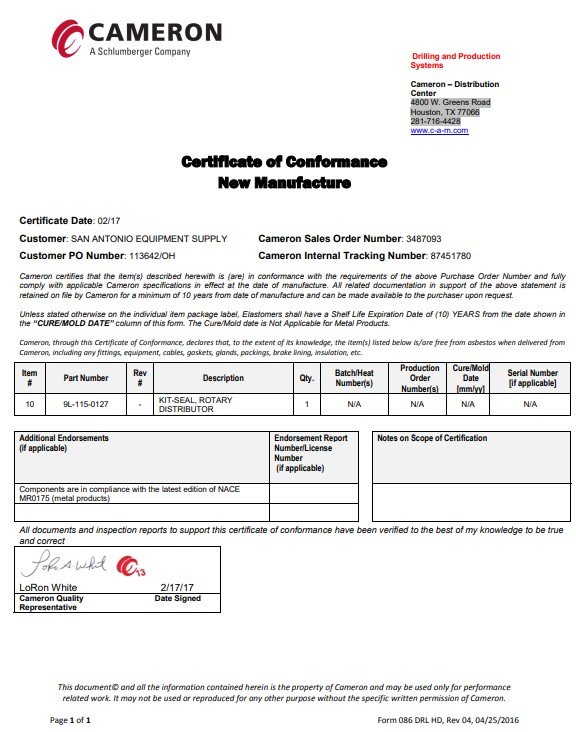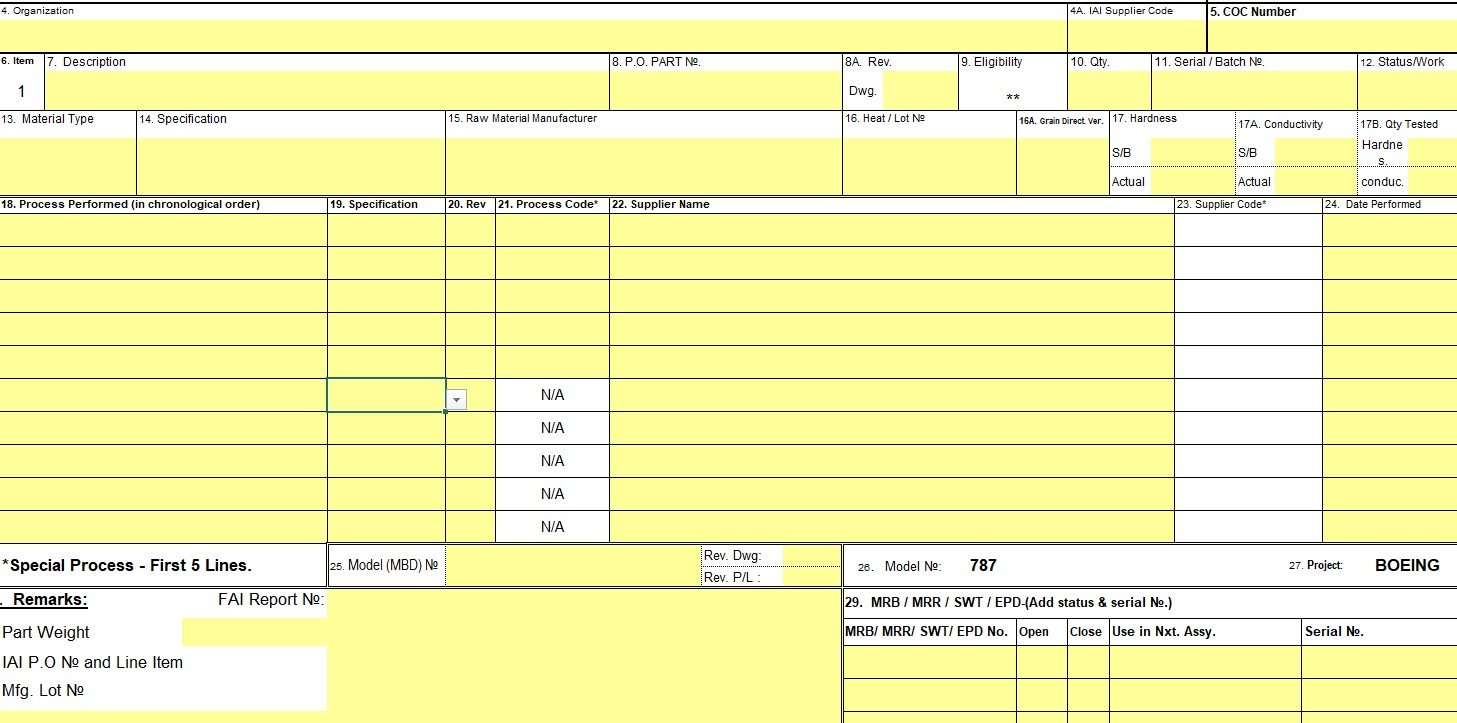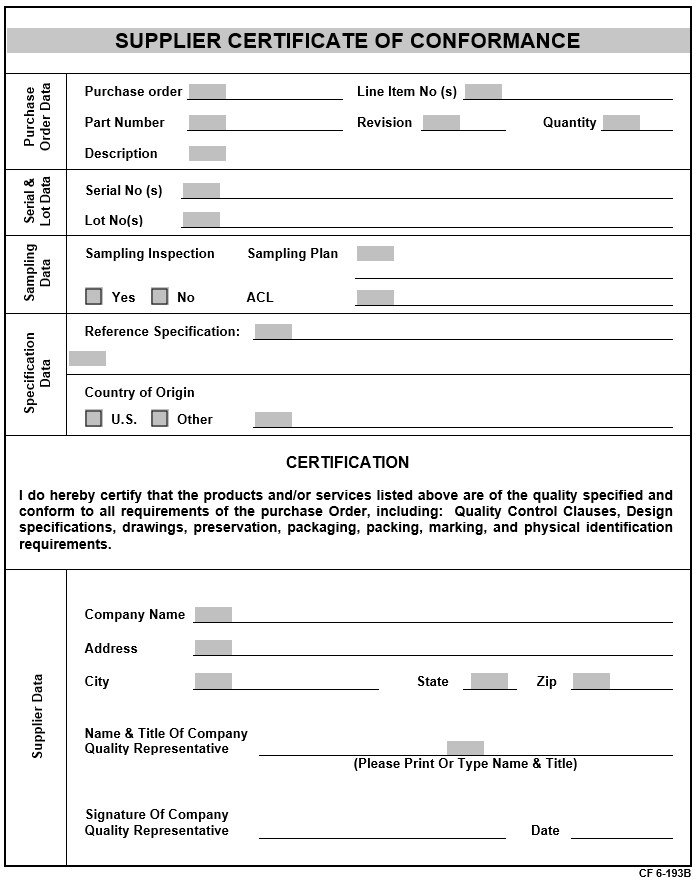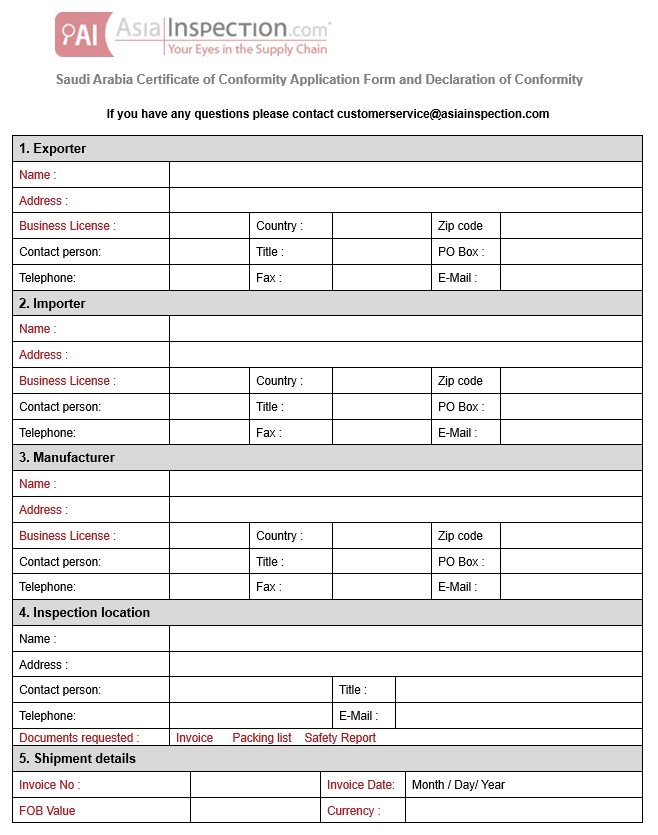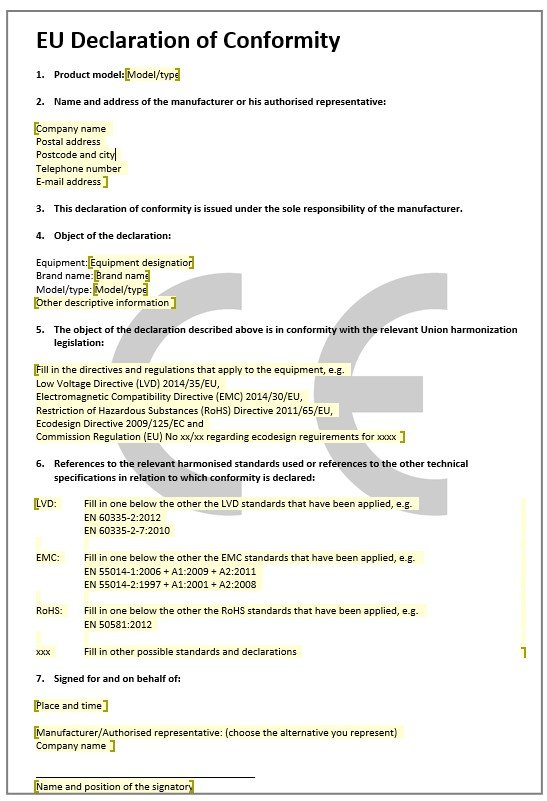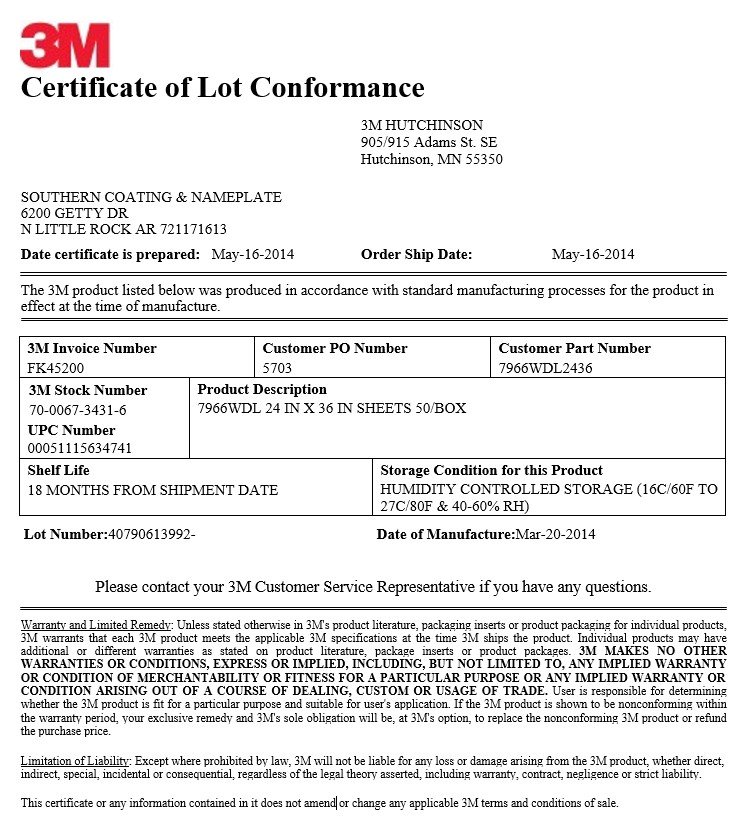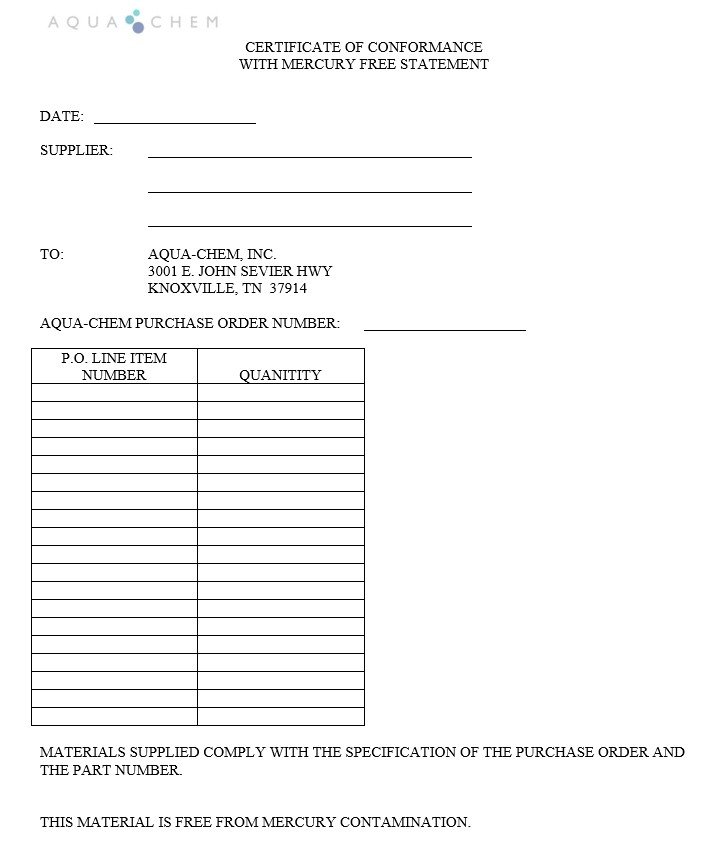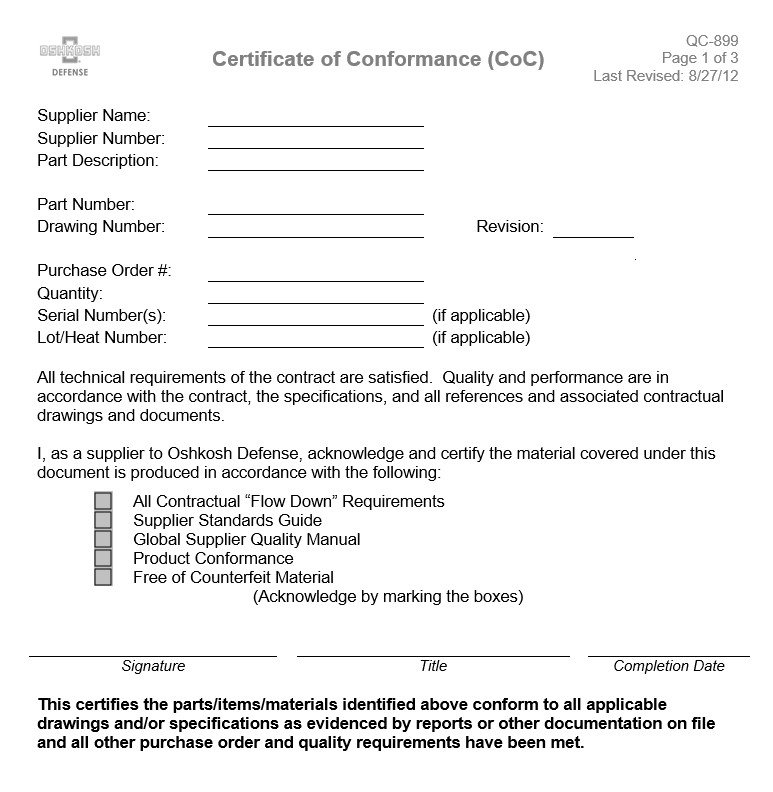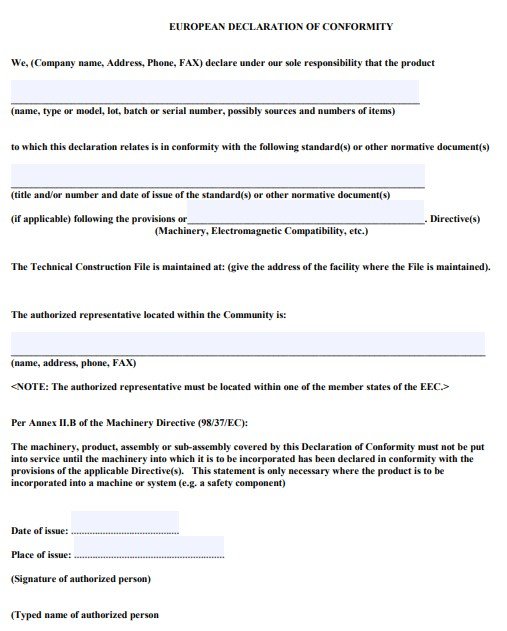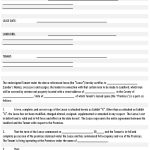A certificate of conformance template is a document issued by a competent authority to make sure that goods and services meet required specifications. A certificate of conformance is also referred as Certificate of Conformity or a Certificate of Compliance.
Before products or services are certified, they usually undergo dissolution testing. For these testing processes, the guidelines are set by a competent authority. In return, this would need dissolution testers and their accessories to meet specifications.
Moreover, these specifications are usually physical in nature. They can be measured with suitable equipment. The authority sets a specified tolerance level and before being certified, products should pass these tolerances. All dissolution accessories are conformed to explain specifications. The certification that they build is referred as the COC or the Certificate of Conformance.
Table of Contents
A precise history about the certificates of conformance:
Primarily, this certificate is considered as a declaration of conformity. For instance, for imported products entering its domain, the European Union has its own conformity standards. This is why, imported goods are subjected to homologation. This indicates the process of approving or certifying a product. This is usually done in order to verify that it fulfills the regulatory standards and specifications.
The manufacturer or importer use this COC document to declare that their product complies with the given approved type. This document gives details regarding the product and its producer’s identification, the type approval number and other data. Furthermore, the main purpose of this document is to make sure from the manufacturer or importer to the distributors or retailers, the free movement of goods.
In 1990s, the use of these kinds of certificates became official. Many countries use a Certificate of Conformance to make sure that the products entering their domain have been tested for safety. They also use it to ensure that the products aren’t causing injuries, death, and damage to property.
What are the uses of certificate of conformance?
Let us discuss below the uses of certificate of conformance template;
In the automotive industry
Certificate of conformance is used as the Vehicle type Approval. The production samples test it to meet the specified performance standards.
In telecommunications
In the communication industry, every jurisdiction that set rules has their own requirements on these types of certificates. For conformance, radio communications equipment has to be tested and such tests may include the following;
- Power and noise characteristics
- Use of permitted frequencies only
- Frequency stability
- Other electrical parameters
In the American nuclear business
A certificate of conformance is required by the sellers of goods to nuclear-generating facilities. They require this certificate to legally commit the seller to specify compliance with applicable laws and regulations.
In American Commerce
This certificate in American commerce is explained as a one which is certified by a competent authority. It indicates that the supplied product or service are according to the required specifications for that product.
In European Commerce
The European Commerce document makes sure the free movement of products within the European community. It is a similar declaration of the with the type approval of European Commerce.
Countries which need a Certificate of Conformance:
Below are some countries that need a certificate of conformance to facilitate import customs clearance;
Algeria
A CoC in Algeria is required for all exports. Under Letters of Credit, it will be a documentary requirement.
Belarus
Belarus require CoC for goods including the following;
- Appliances used in the household
- Any food items
- Textiles
- Cosmetics
- Goods for kids
- Lighting products
- Agricultural machinery
- Welding equipment
- Fire safety equipment
- Vehicles
- Lifts
Kenya
Some goods may not need the issuance of this certificate in Kenya. However, this is something that before the goods are physically shipped from the country of export, the Kenyan importer must obtain permission for them.
Kuwait
This certificate is required in Kuwait for all kinds of exports.
Mongolia
In Mongolia, the goods who have FOB value less than US$500, their shipment will not require verification by an Agency with the authority. Here are the products that need certification;
- Specific types of Food, Beverages, and Agricultural Products
- Tobacco Products
- Chemical Products
- Fuels and Petroleum Products
- Vaccines and Pharmaceutical products
- Paints and Varnishes
- Perfumes and Cosmetics
- Soaps and Washing Preparations
- Leather
- Paper Products
- Iron and Steel Products
- Tubes and pipes
- Miscellaneous Articles made of Base Metal
- Machinery for Food Use
- Domestic Appliances
- Toys for children
Russia
All exports require a CoC in Russia.
Saudi Arabia
All exports require a CoC in Saudi Arabia. Exporters with this requirement still expect random shipments to be subject for sampling on arrival to verify compliance.
Syria
A CoC is required in Syria for the following goods;
- For kids and babies, toys and childcare products
- Electrical and electronic products vehicles
- Automotive components
- Building tools and equipment
- Chemical and household products
Uganda
All goods require a CoC in Uganda except products from Kenya, Tanzania, Rwanda, and Burundi.
Yemen
In Yemen, products like food items, steel bars for reinforcement of concrete, and construction timber require a CoC.
certificate of conformance new manufacturer
certificate of conformance template excel
supplier certificate of conformance template
Saudi Arabia Certificate of Conformity Application Form and Declaration of Conformity
eu declaration of conformity template
certificate of lot conformance template
certificate of conformance with mercury free statement
certificate of conformance template
european declaration of conformity
General questions and answers about the certificate of conformance:
Let us discuss below the most common questions regarding the certificate and their answers;
For issuing the certificate, who is responsible?
It is based on whether you are an importer or a manufacturer. The importer must issue the certificate for products that are manufactured overseas. On the other hand, for the products that are manufactured domestically, the manufacturer issues the certificate.
For each product, the certification must always be founded upon the results of a test or on a reasonable testing program. For the issuance of a certificate, legal responsibilities are always incumbent on the importer or the manufacturer.
Who do you give the certificate to after obtaining it?
The certificate must be furnished by the manufacturer or importer by its distributors or retailers. The manufacturer or importer must provide its distributors or retailers acceptable in order to satisfy the “furnish” or “accompany” requirements. Through email or messenger services, an actual hardcopy of the certificate can be sent to the distributors or importers. In addition, you can give the same electronically by using a dedicated website URL that is given on your invoice.
A copy of the certificate to the Customs Commissioner is a federal law requirement that you provide upon request. The use of a website URL comes into handy. This is because it gives easy access to your certificate. Thus, it facilitates paperwork and resulting to a speedier process through customs facilities. It is good practice to print out a hard copy if it is not accessible electronically.
If I sell directly to consumers, without using distributors or retailers, do you require this certificate?
The law requires to furnish a copy of the document to your distributors or importers. However, it isn’t needed to furnish such to your customers if it involves direct-to-customers sales. if you are selling the goods directly to your customers, this means, you don’t have to make or issue such a document to them.
What must be the basis of your certificate?
For each product or a reasonable testing program, the basis is on the test conducted. Issuing this document is very essential as it acts as evidence that the product is safe and has been tested. There are times when before the product can be exported to other countries, you would require this certificate.
Are there samples available of this type of certificate?
Yes, there are samples of Certificate of Conformity Forms. They are used by manufacturers and importers. You can copy the layout and title the document accordingly. After that, include the pertinent details to your product. You can also create by following the right requirements.
Where should you file your certificate?
You have to file the certificate with the government. It should attach with your product shipment. The same should also be furnished to your distributors or retailers. The document should be furnished only upon request by concerning the Commissioners of Customs.
Can you use e-certificates rather than those printed on paper?
You can use electronic certificates if the Commission has reasonable access to it. This is the more convenient option. Therefore, you can go ahead and make and then issue such a certificate. You have to ensure that you follow the appropriate format. In addition to this, you should also make sure that you have all other requirements, documents or attachments which need to go with it.
If you post your certificate online, do you require to make any changes when for different shipments or batches of products?
If each shipment is materially unchanged from the prior shipment, then a single certificate is acceptable. The more significant thing is to explain the range of products which are covered.
Is a certificate required each time you ship your products?
Yes, it is required. It is needed by law that each shipment comes along with the required certificate. It applies to imported products. Also, these products should be manufactured domestically.
Conclusion:
In conclusion, a certificate of conformance template is a document issued by a manufacturer or an importer that indicates its product complies with all applicable consumer product safety rules.

